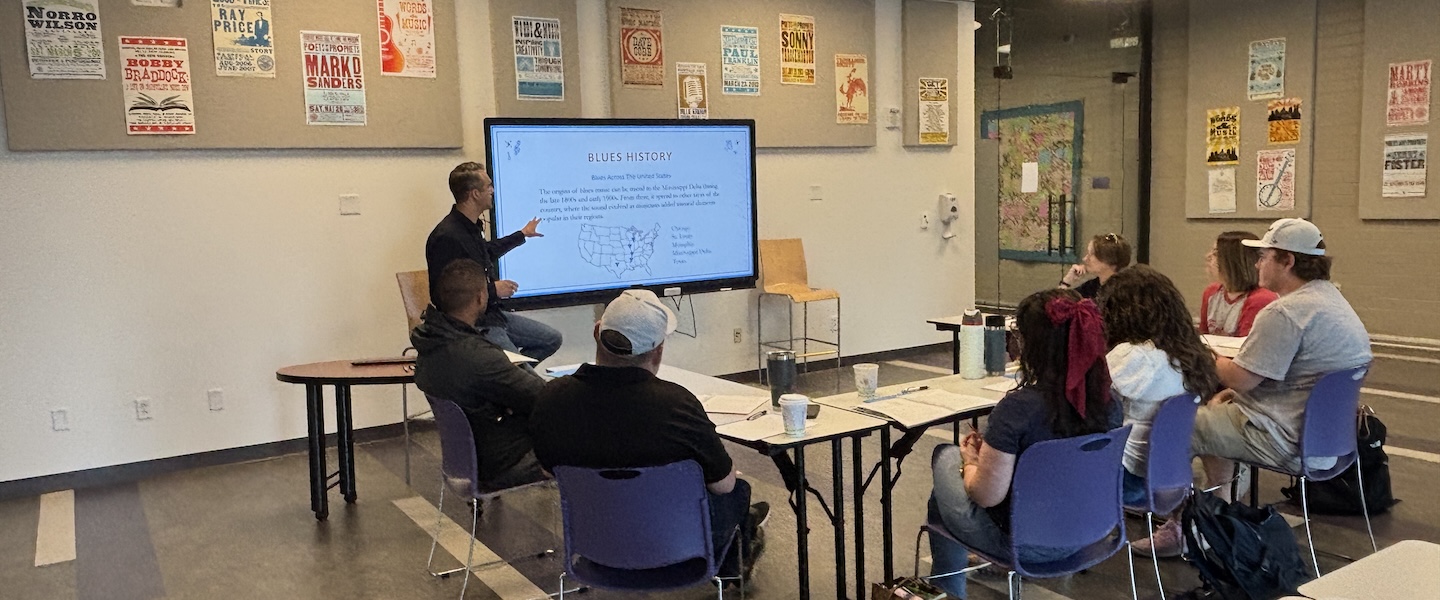Reimagined Master of Music in Music Education program puts working teachers at the center of meaningful curriculum development
On a busy Friday morning in June, a group of Belmont graduate students weren't sitting in a traditional classroom or writing research papers. Instead, they were walking through the Country Music Hall of Fame and Museum — but not as typical tourists. They were there working as music educators with a goal in mind: increased accessibility for students.
The experience offered by the Country Music Hall of Fame and Museum for Belmont's Master of Music in Music Education (MMME) program represents exactly the kind of innovative, practical learning that sets the reimagined graduate program apart. Rather than completing traditional assignments that might gather dust on a shelf, these students are contributing to collaborative work that has real-world implications.
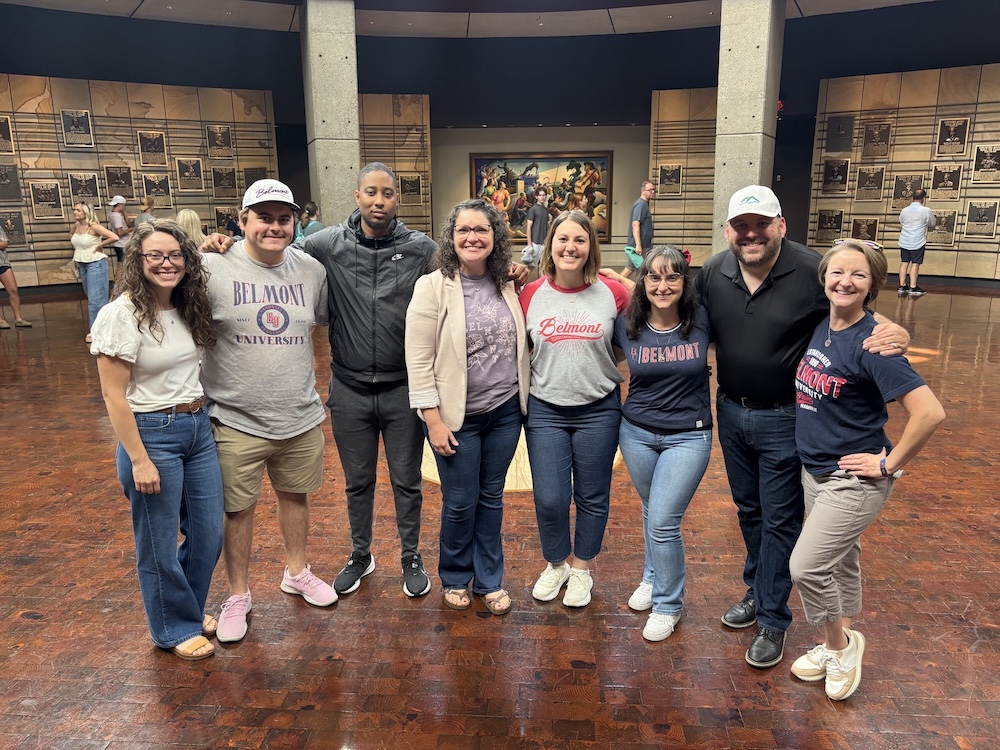
From Nashville Partnership to National Impact
The opportunity emerged from Dr. Julia Reynolds' innovative approach to graduate music education for working teachers. When developing her Accessible Arts Education course for Belmont's MMME program, Reynolds wanted to move beyond traditional academic projects to create something with a more expansive application.
"I wanted the project to be manageable and meaningful for our experienced, working teachers,” Reynolds explained. “I realized that I needed them to take the information gained in class and apply it to something that they may utilize in their own classrooms."
Being in Music City presents unique opportunities for music educators. Reynolds had been promoting the Museum's Words & Music curriculum as a resource for students to use — a comprehensive, grant-funded program available free to low cost to educators nationwide. When she reached out to their education team about a collaboration, they crafted a professional development experience for the student teachers.
The result was a summative project unlike typical graduate work: students would offer suggestions to enhance the Museum’s established music curriculum through the lens of Universal Design for Learning (UDL) principles, creating practical accessibility suggestions.
Music Education Experience at Nashville’s Country Music Hall of Fame and Museum
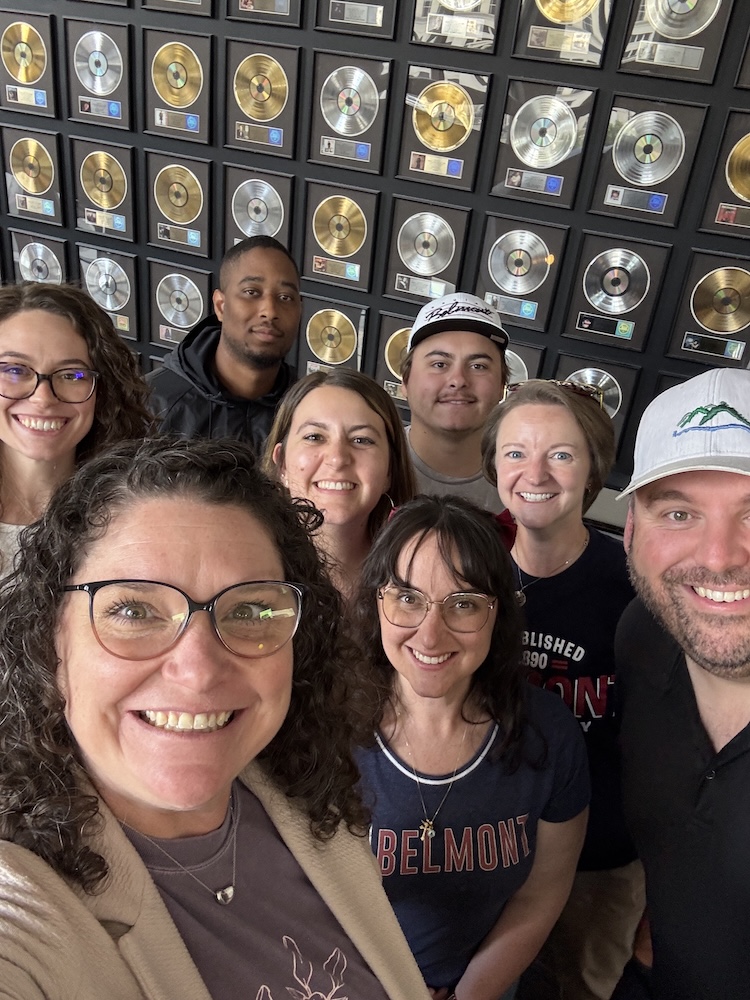 The experience began with students participating in the professional development session offered to music teachers implementing the Words & Music curriculum. But they weren't just passive learners — they were actively considering how to remove barriers for students with diverse needs in music education settings.
The experience began with students participating in the professional development session offered to music teachers implementing the Words & Music curriculum. But they weren't just passive learners — they were actively considering how to remove barriers for students with diverse needs in music education settings.
The group then took a guided tour during peak hours, viewing the experience through their students’ eyes. "It was a paradigm shift to view the Museum in this way," explained Jeremy Bryant, a graduate student who recently transitioned from traditional band directing to commercial/popular music education.
For Abby Hemenway Brown, a seventh-year choral director overseeing more than 256 students at West Valley Middle School in Knoxville, Tennessee, the experience highlighted an important lesson learned. "When we do not think through the lens of making something accessible proactively, it presents challenges and barriers to many, many different students."
Developing Accessible Music Curriculum Resources
Following the tour, students engaged in collaborative brainstorming with Aaron Helvig, director of School and Music Programs at the Country Music Hall of Fame and Museum. Each student then took one lesson from the Words & Music curriculum and integrated UDL suggestions directly into the materials to create practical accessibility resources for consideration.
Universal Design for Learning in music education, as Bryant explained, "is the idea that we present content in such a way that all students in the classroom receive benefit." Using established UDL guidelines, students provided concrete suggestions to ensure every student can access the curriculum, regardless of individual needs.
"The entire approach of UDL is something I am reframing most of my teaching around,” said Bryant. “It ensures that the content of my lessons is being presented in such a way that all of my students, those with additional needs and those without, can benefit from what I am teaching."
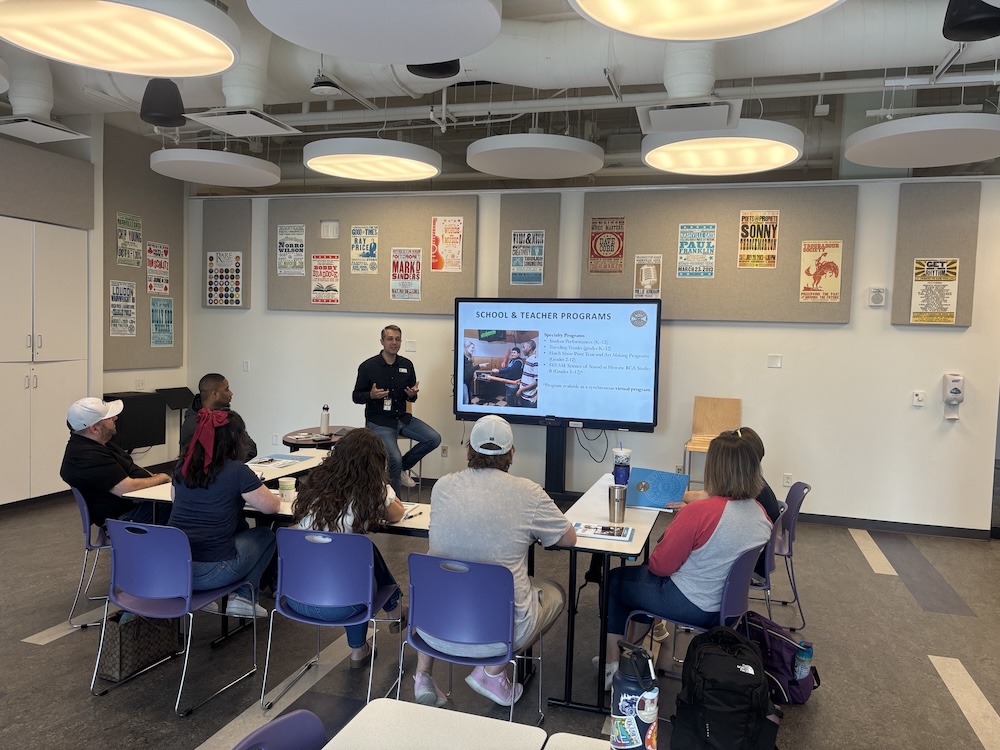
Immediate Classroom Impact
The experience's effects extend beyond the final deliverable. The project resonated deeply with students who entered graduate school seeking applicable knowledge for their teaching practice, not theoretical exercises.
"This kind of learning will stick with me so much more than a traditional 'sage on a stage' method of teaching and learning,” Bryant explained. “This was not simply an assignment to complete; this is a project that we hope will benefit all of the teachers and students that participate in the Words & Music program."
The experience also connected powerfully with other MMME coursework. Brown highlighted how her UDL learning synthesized with Dr. Mann's "mixtape warmups" — using pop songs to teach choral technique — and insights from Kate Paradise's commercial music vocal course, creating multiple pathways to reach students where they are.
A Philosophy in Action
The Accessible Arts Education course reflects Reynolds' deep commitment to inclusive music education. Rather than focusing solely on legal compliance, the nine-module course challenges students to examine their own biases while building practical skills in adaptive curriculum design and community engagement.
"Until everyone is able to access music in the way they prefer — performing, listening, experiencing — my job will never end," Reynolds said. "Many teachers have the heart to be inclusive but often question themselves. I am hoping this class provides them a space to bravely ask questions and be vulnerable, and to take that with them to their own classrooms."
Learning Through Doing
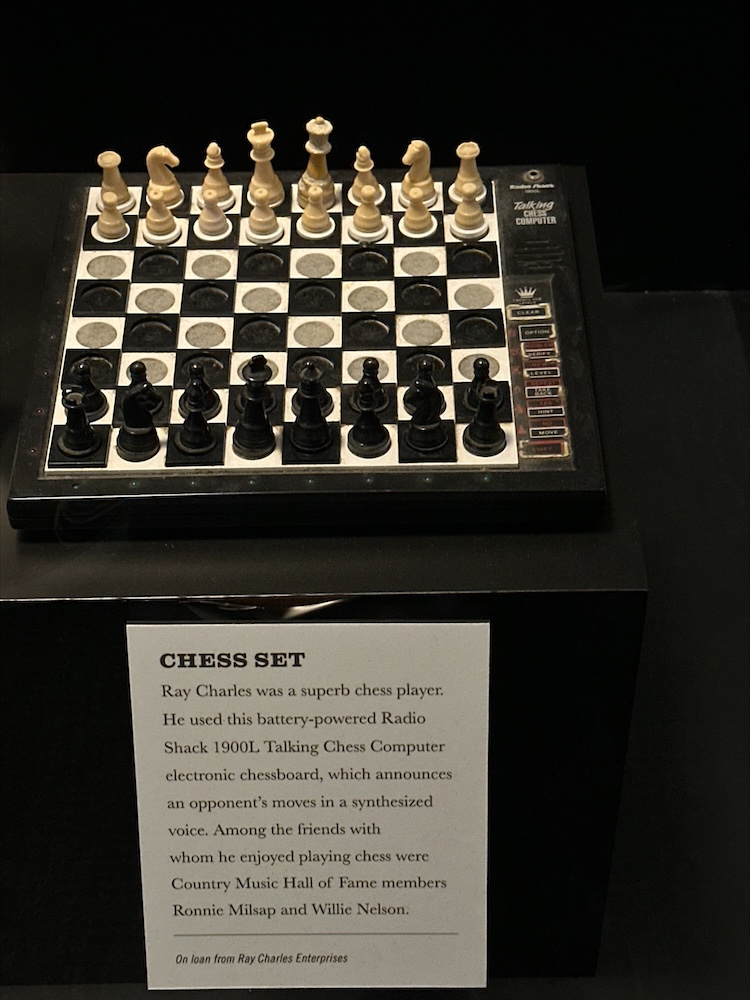
This project not only taught the graduate students about UDL – it taught them through UDL methods as well.
This approach exemplifies the MMME program's broader philosophy of practical, community-engaged graduate education. Students aren't just studying accessibility — they're practicing it, contributing their expertise as experienced educators to create resources that will impact classrooms nationwide.
With final drafts now turned into the Country Music Hall of Fame and Museum, these materials represent more than academic work completed. They embody a new model of graduate education where experienced teachers leverage their classroom expertise in the community.
For Bryant, the experience validates his choice to pursue the program. "The MMME program at Belmont has changed the way I teach at the foundational level. I don't know that a strictly asynchronous online program could provide the kind of in-depth hands-on experiences that we have had over the last 13 months."
And for Brown, it represents the kind of learning she hoped graduate school could be. "It feels great to know that I have contributed to something that is going to make other people's lives better, rather than just learning about a concept on paper."
Learn More
Learn more about Belmont's MMME Program

